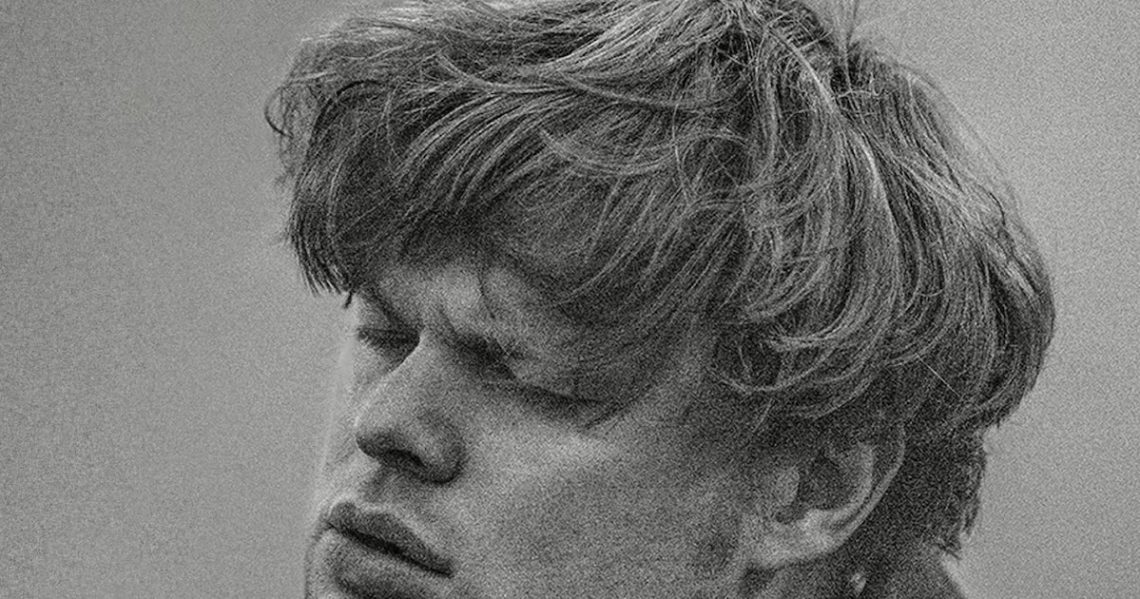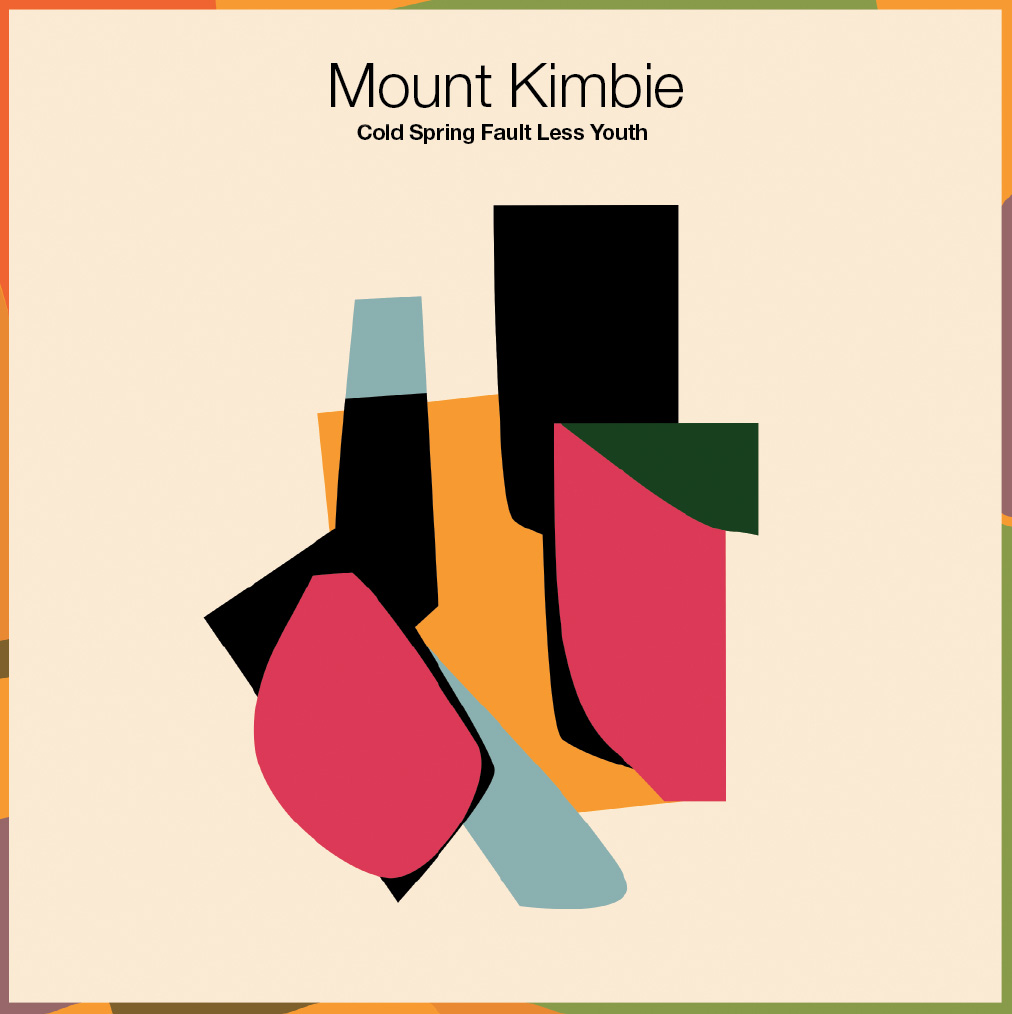For centuries, Dublin has thrived as a folk music stronghold, its tradition evolving from the days of street singers like Zozimus to the fiery voices of the 1960s revival. Today, the city’s folk scene pulses and transcends anew, celebrated on stages worldwide by the likes of Lankum, John Francis Flynn and countless more. Yet beneath this acclaim lies a deep, grassroots network of pipers, singers and storytellers who embody Dublin’s enduring folk soul.
Into this rich tradition steps Macdara Yeates with Traditional Singing from Dublin, a record that feels as vital as it is timeless. Partnering with producer Daniel Fox of Gilla Band, Yeates brings a raw, unadorned approach to ten tracks that marry his powerful voice with a sparse, evocative arrangement. Each song is a masterclass in storytelling and emotion, presented in the same intimate, unfiltered style that has marked Yeates’ work within Dublin’s folk community.
In this track-by-track, Yeates and Fox delve into each piece, offering insights into the influences, intentions, and creative sparks that shaped one of the year’s most essential Irish albums.
Johnny I Hardly Knew Ye
Macdara Yeates (MY): This song is a well-worn classic, perhaps even an overdone one. But it’s always nice to re-interpret a familiar song and try to bring out something different. In this case, I wanted to hone in on the gruesome, tragic quality of the original text. Some de-tuned dissonant guitar helped greatly in that particular task.
Daniel and I grew up together and played in many (terrible) bands down through the years. Despite having trod very different musical paths since then, we both love a manky chord here and there. I remember playing the opening notes of this one in the studio and being met with a good stinkface through the glass in the control room.
Daniel Fox (DF): I’m pretty unfamiliar with most of the source material on the record, so it was fun to be presented with a lot of these tunes totally fresh. This was one of them. I really love the juxtaposition in this tune of the somewhat grim lyrics that stray into being comedy and the nursery rhyme melodies sitting beside some fairly dissonant guitar playing, it’s cool you get the same clash in the lyrics built into the music too.
It’s indeed true the two of us enjoy a good clustered manky chord, a bold move that the most dissonant chord on the record is its first.
The Irish Navigator
MY: A little bit of humour goes a long way in any programme of long, doleful ballads. I learned this song from the great Kevin McGonigle. Kevin is many things; a former tunneller in the London Underground; a present day gutterer on the roofs of Donegal; and an iconic warbler from Inishowen, one of Ireland’s richest singing regions.
DF: I really enjoy these kinds of songs, especially when they’re unaccompanied. It gives a real sense of an old storyteller spinning some bizarre yarn. The fun but playfully unhinged delivery at the end of each verse, on the ‘Irish… nyyyaaaa-vigator’, lends a really colourful pantomime quality, really sucks you in in a surreal goofy kind of way.
The Shores of Lough Bran
MY: How do you know a boomerang is an Irish boomerang? It never comes back, but it won’t shut up singing about how much it wants to.
Emigration songs are one of the great riches of our native song tradition. I got this version from Sarah Ghriallais, one of the finest living Connemara singers. Like many of the singing greats of that region, she too had to leave home to make her way in the world. Thankfully, after some years abroad, she made it back to the family plot in Muiceannach Idir Dhá Sháile, Co. Galway and we are all the richer for it.
DF: This is a beautiful tune. A real eyes closed reflective type tune, great evocative lyrics, some really nice breaks in the voice.
One Starry Night
MY: The late Glasnevin historian Shane Mac Thomáis once said, “You must copy and steal from everyone, all your heroes. Don’t copy one person. That’s plagiarism.” I got this song from the great Dublin singer and activist Liam Weldon, who is something of a musical North Star for me. Liam’s influence has probably made me a plagiarist by Mac Thomáis’ standards.
I demoed most of this album before and during Covid, and the first few sessions revealed to me that my guitar arrangements weren’t really up to snuff. This track was the first step in a new direction.
DF: Myself and Macdara have been friends for years and played music together a bunch growing up. So it was a real treat to work on this record together, I don’t get to record solo performances very often so it was really enjoyable for me on the other side of the glass listening to him do his thing and that to be what comes out on the record, no production whistles and bells, just capturing the performance. He’s got a great voice, but thought the vocal performance on this tune was particularly powerful. Loads of control in the voice but projects a really heavy emotion into it matched with some deep, minimal almost percussive guitar playing, lovely all round.
The Herrin’
MY: A delightful bit of nonsense. I have known this song for years, but only claimed it as my own recently.
I had never played the bodhrán on this track before we went into the studio. We had a good, strong acapella version, and then I said, “I think I could play the bodhrán on this one.” Before I’d finished the sentence Daniel said, “I was actually thinking the exact same thing.” You learn not to question those moments, but take them as a good sign.
DF: I think this is my favourite of the upbeat tunes. Just great fun and a bit of seaside surrealism.
The Blue Tar Road
MY: The great Dublin singer (and professional window cleaner) Luke Cheevers once told me, “it takes a few hours to learn a song, but years to know it.” I have been singing this song for well over a decade, and still feel like it’s opening itself up to me. Some songs are like whiskey; they have to sit in the cask and seep into the walls for years before you crack them open.
We only did one take of this. The song requires too much emotionally for repeated attempts.
DF: Beautiful tune this. One of those songs where it’s like an entire film plays out in your head as the lyrics.
Rockin’ the Cradle
MY: While this is a fairly stripped back traditional singing record, I was excited about adding some layers onto this one. We looped and reversed the sound of guitar harmonics in the second verse and laid it under the low bass note. It took some trial and error, but I remember the feeling of satisfaction when it came together. Daniel sat back in his chair and said, “Brian Eno, eat your fuckin’ heart out.”
DF: Nice guitar arrangement on this, sits nicely in the lyrics, the steady gentle bumps of the harmonics throughout, rocking the cradle as it were.
The only song with an overdub. We trial-and-errored a few ideas on that second verse. This record was made generally quite quickly, I think the only arsing around was us fishing for ideas on that verse, a kind of hilarious hour or two down the rabbit hole of the bbc sound effects library listening to samples of exotic birdsong and icy winds before the lightbulb moment of getting those reverse harmonics came to save us, great fun altogether.
The Kerry Recruit
MY: Recording unaccompanied songs in an isolated studio environment is hard. There’s nothing to bounce off and none of the social energy of the pub or house party to inspire the mood. We did a few takes of these tracks, but nine times out of ten Daniel would encourage me to use the first take. There was a freshness and inspiration the first time around that was hard to recapture once the cap was off the bottle.
DF: Hard to beat a first take sometimes, especially on a tune like this which has such a high kind of roving energy to it. It’s interesting recording unaccompanied singing, I’d never done it before. There’s really nothing to hide behind with it so the energy and feeling coming off the singer is what it’s all hanging on. A lot of guts required.
Our Last Hope
MY: Would you believe the man who wrote Come Out You Black and Tans could write such a hopeful, anti-sectarian song? Dominic Behan, one of our greatest songwriters, put this together some time in the 70s but never recorded it himself. If we ever do manage to unite this little island, this will be my submission for the new national anthem.
DF: A great tune with a great belting vocal on it too. A bigger picture historical viewpoint, often required in a sometimes cartoonish world.
Boys From Home
MY: Another emigration song, this one sung by the late great Joe Heaney, yet another Connemara great who made his living in England and America. Unlike Sarah Ghriallais, Joe never made it back home and died in Seattle at the age 64 having spent almost all of his adult life abroad.
We mixed this track after a few long days in the studio. I remember asking Daniel if the notes on the high end of the guitar could have “more low end.” I won’t describe the look he gave me when I said it, but he was kind enough not to deck me.
DF: Haha, the most gut-punching low end on some high acoustic guitar notes going.
Great slow train of a song to cap things off.
Buy Traditional Singing from Dublin via Bandcamp here






